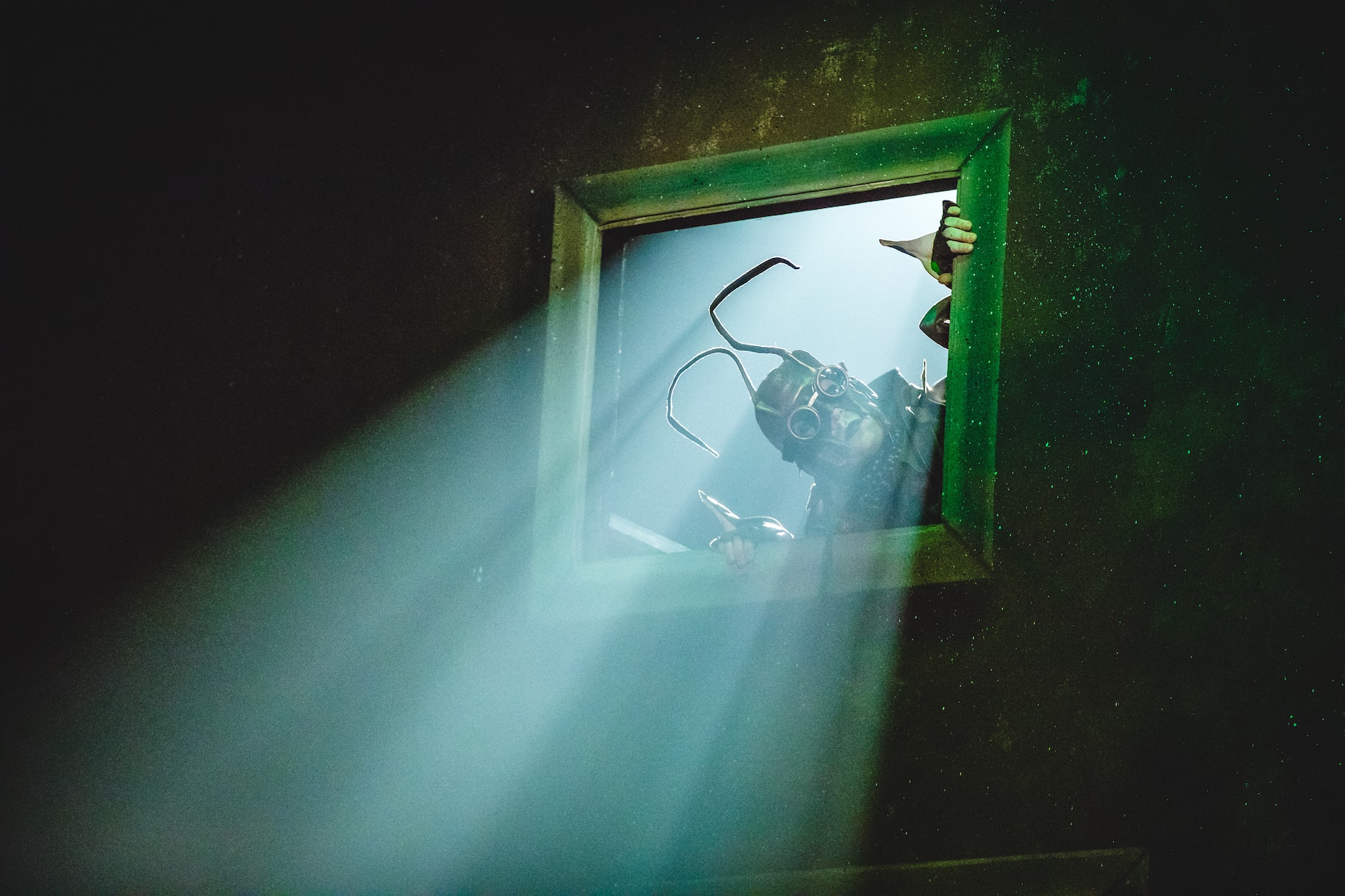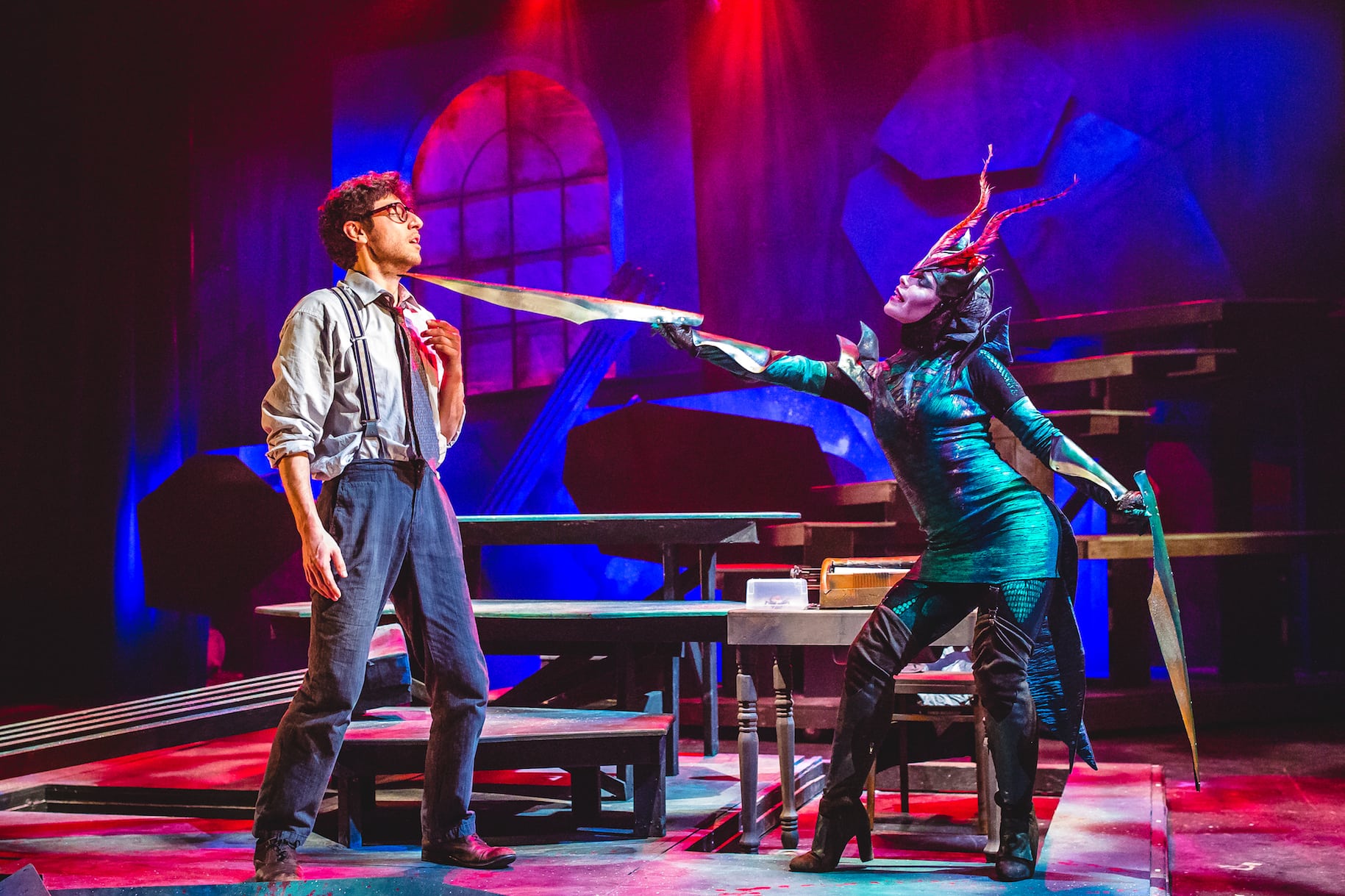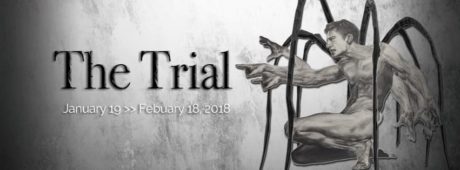Kafka’s nightmare novel about a man named Joseph K—who is arrested, detained, and tried but never told what he has done wrong—would seem perfect for Synetic Theater’s magic touch. A promising opportunity to use its magnificent design, choreographic, and musical talents in service to a surreal story with unmistakable relevance today. A potential parable about faceless state action rounding up and deporting people whose only crime is to live here.
Surely the adjective Kafkaesque applies to what is now being done to innocent people in our country’s name. So I looked forward to Synetic’s take on the story of Joseph K.

I recall being greatly impressed by the contemporary resonance to be found in the previous Synetic production I saw, The Mark of Cain. In my review I wrote:
Fans of Synetic Theater’s music-and movement-based works derived from classic texts will find a surprise twist in the company’s latest offering. Typically, a Synetic extravaganza creates a vivid other world, someplace unto itself, visually voluptuous, aurally luscious, always a trip to somewhere fantabulous. But with The Mark of Cain, Synetic’s first wholly original devised work in five years, the other world collides with the real world. The mythic meets the immediate. And the impact is smashing.
The narrative of The Mark of Cain traced the mythic origin of human evil and how it has persisted throughout history in corrupt power…
And then comes the episode where Cain’s emblem of malevolent authority is … a too-long red tie around his neck. You may have suspected the show was going there and it does, breathtakingly.
With that brilliant allusion to Trump, the entire piece took on gravitas that left me marveling.
Just as well as Synetic can retell a classic of literature wordlessly, the company now shows its chops evoking corruption and resistance viscerally, without a word being spoken.
Thus I was expecting Synetic’s The Trial to have some of the same currency and heft. Perhaps even more, since The Trial would have language (not credited in the program except that Nathan Weinberger is billed as Adaptor).

Directed by Artistic Director Paata Tsikurishvili with movement by Associate Artistic Director Irina Tsikurishvili, The Trial is as eye-popping, ear-buzzy, and kinesthetic as anything I’ve seen at Synetic. Costume Designer Erik Teague has outfitted all the characters (except Joseph K) as eerie oversize insects, bug-eyed, scaley, multilimbed, creepy-crawly. Lighting Designer Brian S. Allard deploys a vivid palette of reds, greens, blues, and yellows into an ominous dark world evoked by Scenic Designer Daniel Pinha’s “massive, ruthless insect hive” (per a program note). And in the same menacing vein, Resident Composer Konstantine Lortikipanidze has again scored an extraordinary soundscape, this time employing what seems an orchestra of anthropods.
Shu-nan Chu is especially good as Joseph K, the hapless pawn in a pernicious powerplay who tries his best to protest and resist. And the various personages named in the novel who figuratively bug Joseph K, and who here are literally bugging out, are also very well played (Tori Bertocci as Anna, Chris Willumsen as Willem, Thomas Beheler as Franz, Ryan Tumulty as Inspector/Judge/Priest/Huld, Kathy Gordon as Clerk/Mrs. Grubach/Leni, Lee Liebeskind as Karl).

But The Trial didn’t work for me. As I left the theater I wondered why. And here’s what I figured out.
By turning all the ancillary characters in The Trial into insects, Synetic in a sense conflated the story of Joseph K with the story of Gregor Samsa, who in Kafka’s Metamorphosis wakes up as a huge cockroach. Taking that sort of liberty is Synetic’s stock in trade, of course, and typically the payoff is fresh insight into the source material.
This time, though, the approach proves antithetical to the text. Synetic’s vision of The Trial turns the story of an ordinary man bedeviled by mindless bureaucrats into a story of an ordinary man beset by a roach infestation. Which makes the play not so much a trenchant parable as a hollow sci-fi tale of alien abduction.
Whatever Kafka’s reason for telling the stories of Joseph K and Gregor Samsa in separate works, it was probably a good one. Mushing them together not only misses the point of the author. It’s a missed artistic opportunity for contemporary resonance and revelation.
Running Time: 100 minutes with no intermission.
The Trial plays through February 18, 2018, at Synetic Theater – 1800 South Bell Street, in Crystal City, VA. For tickets, call the box office at (866) 811-4111, or purchase them online.
Note: This production is recommended for ages 14+ for mature content.
LINK:
Review: ‘The Trial’ at Synetic Theater by
VIDEO:





